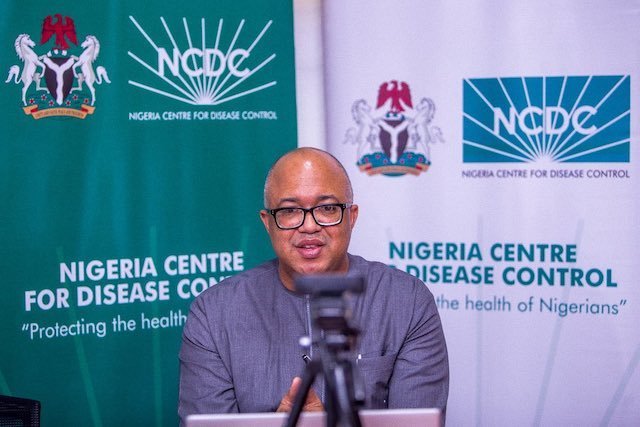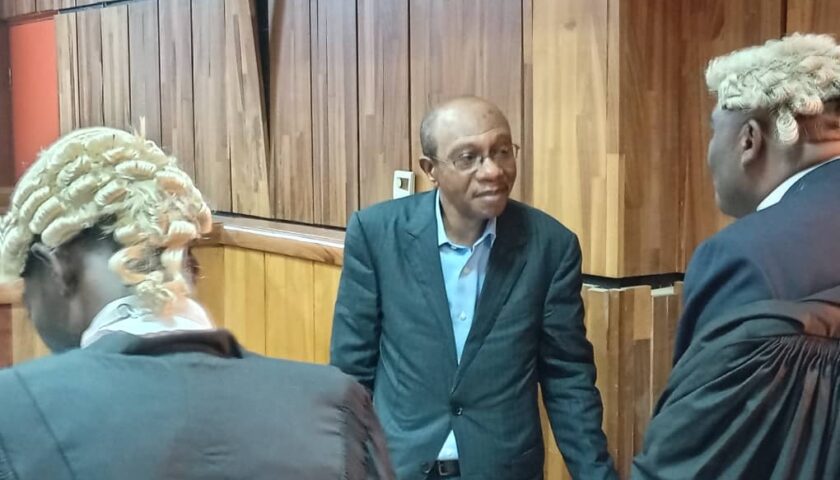Outgoing NCDC Director General Dr Chikwe Ihekweau who will join the World Health Organisation this November
In recognition of his hard work and efforts in Nigeria’s health sector especially the role he played in combating the dreaded coronavirus (COVID-19) pandemic in Nigeria, the Director General (DG) of the Nigeria Centre for Disease Control (NCDC), Dr. Chikwe Ihekweazu, has been appointed as Assistant Director-General of the World Health Organisation (WHO) in charge of Health Emergency Intelligence.
The appointment takes effect from November 1, 2021. A statement by WHO Director General, Dr. Tedros Ghebreyesus, yesterday, explained that Ihekweazu would lead the work on strengthening pandemic and epidemic intelligence globally, including heading the WHO Hub for Pandemic and Epidemic Intelligence in Berlin, which was launched yesterday.
Governor Hope Uzodimma of Imo State and a former Deputy Governor of the Central Bank of Nigeria, Professor Kingsley Moghalu, lauded the appointment, calling it well-deserved. The WHO Hub for Pandemic and Epidemic Intelligence is a global platform for creating shared and networked access to vital multi-sectoral data, driving innovations in data analytics, and building the communities of practice needed to predict, prevent, detect, prepare for, and respond to worldwide health threats.
In addition, the WHO Hub is a new global collaboration of countries and partners dedicated to driving innovations to increase availability and linkage of diverse data; developing tools and predictive models for risk analysis; and monitoring disease control measures and infodemics.
The WHO Hub would enable partners from around the world to collaborate and co-create the tools and data access that all countries need to prepare, detect and respond to pandemic and epidemic risks.
The statement by the WHO director-general said, “I am pleased to welcome Dr. Chikwe Ihekweazu as an Assistant Director-General for Health Emergency Intelligence from November 1, 2021. He will lead the work on strengthening pandemic and epidemic intelligence globally, including heading the WHO Hub for Pandemic and Epidemic Intelligence in Berlin.
“I am confident that Dr. Ihekweazu’s appointment will help further accelerate WHO’s work in health emergencies. Please, join me in welcoming him to WHO.”
Speaking on the need for the new global initiative, German Chancellor, Dr. Angela Merkel, was quoted as saying, “The current COVID-19 pandemic has taught us that we can only fight pandemics and epidemics together. The new WHO Hub will be a global platform for pandemic prevention, bringing together various governmental, academic and private sector institutions.
“I am delighted that WHO chose Berlin as its location and invite partners from all around the world to contribute to the WHO hub.”
The German Minister of Health, Jens Spahn, said there was need to identify pandemic and epidemic risks as quickly as possible. Spahn stated, “For that aim, we need to strengthen the global early warning surveillance system with improved collection of health-related data and inter-disciplinary risk analysis.
“Germany has consistently been committed to support WHO’s work in preparing for and responding to health emergencies, and the WHO Hub is a concrete initiative that will make the world safer.”
The minister assured that the WHO Hub would work with partners globally to achieve a scale-up in innovation for existing forecasting and early warning capacities in WHO and member states. He also said the WHO Hub would accelerate global collaborations across public and private sector organisations, academia, and international partner networks.
According to Spahn the pandemic intelligence hub would help countries to collaborate and co-create the necessary tools for managing and analysing data for early warning surveillance. Ihekweazu, while speaking in an exclusive interview with THISDAY, said the decision to appoint him to lead the global initiative was a recognition of the work the NCDC under his leadership.
Ihekweazu said, “It is in recognition of what we have done in Nigeria with the NCDC, the Federal Ministry of Health, and the Presidential Steering Committee in responding to this pandemic in Nigeria; in responding to many other infectious disease threats that have happened over the last few years – monkey pox, Lassa fever and the rest of them.
“Also, it is in recognising that in order to have a global initiative to respond, there is need to have deep knowledge about how local systems work. So, I think it is a recognition that the work that we have done over the past five years to develop this system will have a big contribution in the global context.”





